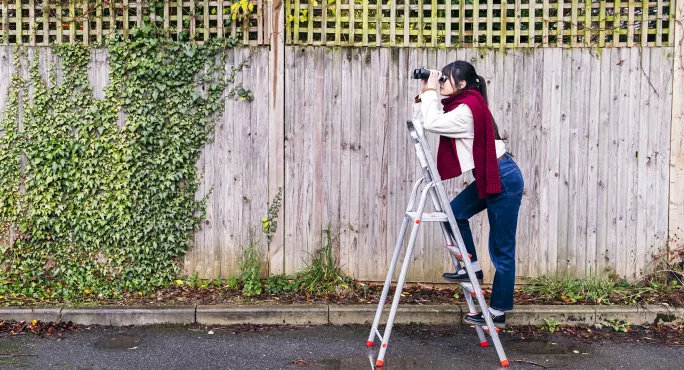
Why schools need a more humane accountability system

Humane accountability is a phrase that we’ve used within the Headteachers’ Roundtable since I joined in 2016.
As headteachers, we know that accountability is a necessary and important aspect of leadership, and we welcome scrutiny that supports high standards of education and holds those in public service to account.
However, accountability’s role within the sector has become disproportionate, and is now a distraction from our core business: educating young people.
The volume and impact of accountability measures and methods have created inhumane and unhealthy levels of monitoring that undermine the standards they were designed to assure.
Schools are accountable to a myriad of agencies including central and local government and Ofsted through performance measures, inspection outcomes and compliance mechanisms. Academies also report to trust executive leaders, trustees and, by association, regional directors.
Meanwhile, all schools remain accountable to their school communities and, increasingly, are absorbed in managing parental complaints that can be accompanied by time-consuming subject access requests.
But it is important that satisfying those to whom we are accountable does not dominate teachers’ energies. As a profession, we need to beware of becoming institutionally fixated on pacifying others at the expense of acting in the best interests of children.
The circus of inspection
Teachers in the Ofsted inspection window are all too familiar with the phenomenon of waiting on tenterhooks until Wednesday afternoon to see whether Damocles’ sword will fall that working week.
And once “the call” is received, surviving the circus of inspection activity to demonstrate the worthiness of an adjective accolade is an intense, career-defining experience.
While a healthy dose of pressure can optimise performance, the pendulum has swung too far, and those that lead in more challenging contexts and deprived communities are particularly vulnerable.
Headteacher Ruth Perry’s inquest should have been a watershed moment for school inspection.
Instead, the responses - which included conducting a minute’s silence, asking heads “Are you ok?” during inspection, and online inspector training for how to spot stress among teachers - were inadequate. A far deeper systemic review is required.
While Perry’s case is an extreme example of the impact that inhumane accountability methods can have on school leaders, it is not in isolation. I am aware of leaders who are reliant on anti-depressants and sleeping tablets to manage the anxiety and pressure of impending inspection, and the worry of the implications of unfavourable outcomes.
- Heads slam Ofsted ‘big miss’ over single-word grades
- ‘Dangerous’ Ofsted still a ‘risk to life’, heads warn
- Prioritising staff wellbeing helps a whole school
Crass single-word judgements derived from a snapshot taken in a matter of hours should not define schools, their communities and their staff.
Neither should simplistic statistics that encourage game-playing. Education is not a competitive sport, and schools should not be judged in a zero-sum game.
Time for change
And yet the current system perpetuates a culture of pitting schools against each other and shaming those with less desirable results.
It’s time for a change. The Headteachers’ Roundtable education manifesto sets out recommendations that have been generated from listening exercises with regional headteacher groups from across the sector.
Policy priorities outlined in the paper seek to address the toxic triangle of insufficient funding, recruitment and retention challenges, and burdensome and inhumane accountability. An alternative model is one in which accountability methods are fit for purpose.
This includes a more holistic performance data dashboard with context and inclusivity measures, such as destination data; proportions of children with education, health and care plans; movement off roll; elective home education; long-term disadvantage and all those other factors that sit behind the headline figures we see for schools.
Changes to inspection need to improve peer and self-evaluation mechanisms with separate annual reviews for safeguarding and school roll activity. Complaint processes need to be streamlined and rationalised to avoid layers of responses and to prevent vexatious complainants from absorbing a significant amount of time and resources.
A refined, humane and intelligent accountability system is needed as an urgent governmental priority to recognise the complexity of schooling, move beyond crude and simplistic headline data and judgements, and recognise rather than punish schools for being inclusive.
Helena Marsh, principal of Linton Village College, is co-founder of WomenEd and a member of the Headteachers’ Roundtable
You need a Tes subscription to read this article
Subscribe now to read this article and get other subscriber-only content:
- Unlimited access to all Tes magazine content
- Exclusive subscriber-only stories
- Award-winning email newsletters
- Unlimited access to all Tes magazine content
- Exclusive subscriber-only stories
- Award-winning email newsletters
You need a subscription to read this article
Subscribe now to read this article and get other subscriber-only content, including:
- Unlimited access to all Tes magazine content
- Exclusive subscriber-only stories
- Award-winning email newsletters
- Unlimited access to all Tes magazine content
- Exclusive subscriber-only stories
- Award-winning email newsletters
topics in this article



